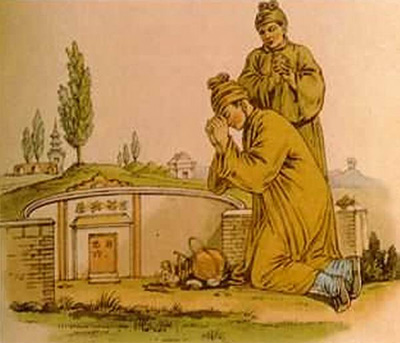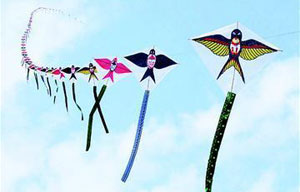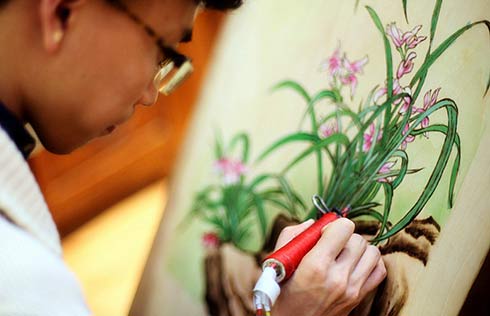

The Qingming Festival is an opportunity for celebrants to remember and honor their ancestors at grave sites. Young and old pray before the ancestors, sweep the tombs and offer food, tea, wine, chopsticks, joss paper accessories, and/or libation to the ancestors. The rites have a long tradition in Asia, especially among farmers.
Some people carry willow branches with them on Qingming, or put willow branches on their gates and/or front doors. They believe that willow branches help ward off the evil spirit that wanders on Qingming. Also on Qingming people go on family outings, start the spring plowing, sing, dance, and Qingming is a time where young couples start courting.
Another popular thing to do is fly kites (in shapes of animals or characters from Chinese opera). Others carry flowers instead of burning paper, incense or firecrackers as is common.

The holiday is often marked by people paying respects to those who died in events considered sensitive in China. The April Fifth Movement and the Tiananmen Incident were major events on Qingming that took place in the history of the People's Republic of China. When Premier Zhou Enlai died in 1976, thousands visited him during the festival to pay their respects.
Many also pay respects to victims of the Tiananmen Square protests in 1989 and the graves of Zhao Ziyang and Yang Jia in areas where rights of free expression are generally recognized, as in Hong Kong; in most areas of China such observances are suppressed and all public mention of such subjects is taboo.
In Taiwan the national holiday is observed on April 5 because the ruling Kuomintang moved it to that date in commemoration of the death of Chiang Kai-shek on April 5. The holiday is nevertheless observed in the traditional manner, with families gathering to honor their own ancestors, visit and maintain their family shrines, and share traditional meals.
Despite having no holiday status, the overseas Chinese communities in Southeast Asian nations such as those in Singapore and Malaysia take this festival seriously; deep in heritage, rituals and strict decorum.
Qing Ming in Malaysia is an elaborate family function or a clan feast (usually organized by the respective clan association) to commemorate and honor their late relations at grave site and their distant ancestry of China at home altar, clan temple or a makeshift altar in a Buddhist or Taoist temple.
For the oversea community, Qing ming festival is very much a family heritage and at the same, a family obligation. The overseas Chinese see this festival as a time to reflect, honour and give thanks to their forefathers.
 |



